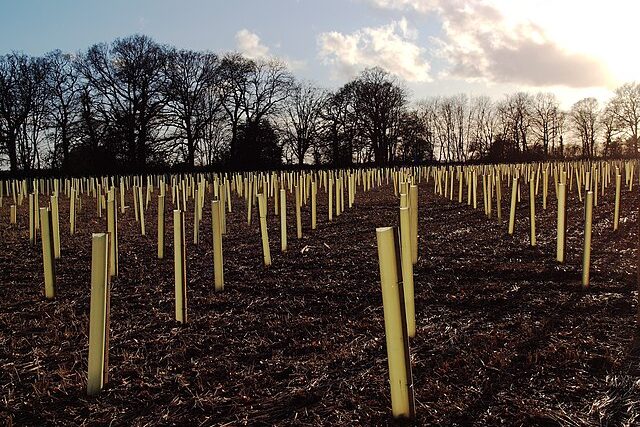
The new standards for carbon offsets ‘should bring greater scrutiny’.
A new approach to reassuring customers that schemes will safeguard the environment is being developed by an industry body.
Following an investigation by the Guardian that revealed widespread issues with offsetting, leading figures in the carbon credits market have insisted that new standards should bring greater scrutiny to carbon offsets and give buyers confidence that their money is helping protect the environment.
The Integrity Council for the Voluntary Carbon Market, whose non-binding principles sellers of carbon credits can sign up to, is working on new standards to reassure consumers, according to Annette Nazareth, chair.
She stated, “We are working intensively to set a definitive global threshold standard for high-integrity carbon credits, based on solid science and clear, measurable, verifiable data that will respond to market concerns and give buyers confidence that they are funding projects that make a genuine, positive impact,”
One of the world’s leading climate and development economists, Lord Stern, stated: “There is a potentially important role for voluntary carbon markets that allow companies to offset residual emissions that they are unable to avoid as part of a strategy to reach net zero emissions.
“These markets could channel significant investment into both natural and artificial ways of removing carbon dioxide from the atmosphere. But these markets will only work properly if the credits that are traded are high-quality and both participants and external observers can be confident that they result in real removals of carbon dioxide.”
The Guardian reported earlier this week that the world’s leading provider approved rainforest carbon credits that were “90% worthless.” The findings are strongly contested by the credit manufacturer. This kind of credit has been purchased by companies like Disney, Lavazza, and Gucci to offset the impact on their operations’ climate.
The revelations have shaken the global “voluntary” carbon markets, which get their name from the fact that they are not governed by governments. Markets are supposed to operate independently, but there are numerous standards and claims.
Projects like protecting rainforests from logging, preserving natural carbon sinks, or lowering greenhouse gas emissions by funding wind or solar farms receive carbon credits. They are frequently purchased by businesses for the purpose of claiming carbon neutrality and canceling the effects of their emissions.
The Guardian discovered a number of issues in the market, such as people who claimed to have had their homes demolished to make way for projects and offsets that offered little or no environmental benefit. It is difficult to prove the claim made by conservation projects that the trees would be prey for loggers without their protection.
However, numerous climate experts have also stated the necessity of carbon markets. Governments are unlikely to provide the hundreds of billions of dollars required to reduce emissions and preserve the world’s remaining carbon sinks, and there are few ways to generate the necessary funds.
Selling carbon credits could provide locals with an income and act as an incentive to preserve forests rather than logging them or using them for plantations or agriculture.
Carbon markets have been advocated for by Mark Carney, the former governor of the Bank of England. In December, he stated at the Cop15 conference on biodiversity: “We must rapidly progress efforts to bring both high integrity and high volume to voluntary carbon markets so that carbon credits can fulfil their potential of reducing emissions and supporting biodiversity, mitigation and adaptation objectives … The carbon market could deliver huge co-benefits for the planet, Indigenous peoples and local economies.”
Nazareth said the new, more stringent standards that should come later this year would provide reassurances to buyers. “Once we have issued high-integrity labels, we will oversee the market,” she promised. “We will conduct spot checks to ensure credits with high-integrity labels meet the criteria, monitor concerns and complaints, and engage with programmes to understand how they are dealing with these issues. As with any regulatory process, we will learn lessons and use these to continually develop our core carbon principles.”
——————————————————————————
At Natural World Fund, we are passionate about stopping the decline in our wildlife.
The declines in our wildlife is shocking and frightening. Without much more support, many of the animals we know and love will continue in their declines towards extinction.
When you help to restore a patch of degraded land through rewilding to forests, meadows, or wetlands, you have a massive impact on the biodiversity at a local level. You give animals a home and food that they otherwise would not have had, and it has a positive snowball effect for the food chain.
We are convinced that this is much better for the UK than growing lots of fast-growing coniferous trees, solely to remove carbon, that don’t actually help our animals to thrive.
This is why we stand for restoring nature in the UK through responsible rewilding. For us, it is the right thing to do. Let’s do what’s right for nature!
Support our work today at https://naturalworldfund.com/ and join in the solution!

